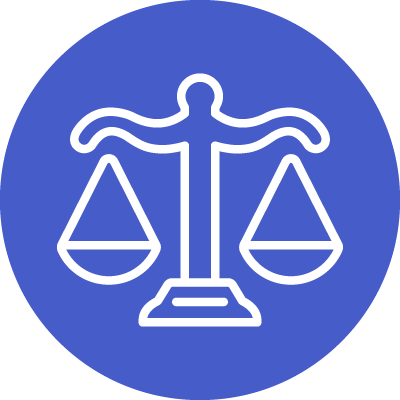Legislative Assembly Legal and Social Issues Committee
Inquiry into the recruitment methods and impacts of cults and organised fringe groups
Conducting Public Hearings
About the questionnaire
317
people responded to the online questionnaire
80.1%
shared their own experiences
14.8%
shared the experiences of someone close to them
5.0%
preferred not to say
Lived experiences of cults and high‑control groups: Insights from the anonymous questionnaire
As part of our inquiry into how cults and high‑control groups are using harmful tactics to recruit and control their members, the Legislative Assembly’s Legal and Social Issues Committee asked people to share their lived experiences through an online questionnaire. Recognising the sensitivity of these experiences, people were given the option to share their experiences anonymously.
The questionnaire responses demonstrated consistent patterns of harmful behaviours within cults and high‑control groups, as well as consistent impacts experienced by former members of these groups.
For some former cult and high‑control group members, responding to the questionnaire may have been their first opportunity to share their experiences. The Committee acknowledges the importance of this evidence and thanks everyone who has engaged with the Inquiry so far.
"There is not enough education everywhere about cults, people still assume people are stupid for “joining a cult”, no one joins a cult, you’re recruited or join a community that turns out [to be] something more. People who think they “could never join a cult” without actual education are more at risk. We are all at risk."
These insights provide a high‑level narrative overview of the questionnaire responses. They are supported by an interactive Power BI report that shows the underlying data in more detail.
How did the group/leader make contact?
Top five* recruitment methods used:
38.2%
through a friend or family member
22.1%
born into
11.7%
during a time of personal hardship
10.7%
at school, university or workplace
10.1%
at a religious or spiritual event
* 16.7% selected ‘other’ which represented a wide variety of free text responses.
Note: In this multichoice question, a list of recruitment methods was provided and respondents were asked to select all options that applied. The values represent the proportion of people who selected each method.
Recruitment
For most, their first contact with cults and high‑control groups came through the people closest to them or other trusted networks. For those who were not born into these groups, recruitment often occurred at vulnerable points in their life, such as during adolescence or while experiencing personal hardships.
63.4% of respondents became involved with cults or high‑control groups through family connections, such as being born into a family or marrying someone already involved, or following parents, siblings or children who became involved.
Others joined because of close personal relationships, including with friends, classmates and coworkers. People described how cult and high‑control group members deliberately built relationships with them to gain their trust and recruit them, often without them realising what was happening.
"...in this specific group the person who recruits you, never tells you but is a member of the group and acts as a newcomer and their role is to befriend you and pass on information to their higher ups about you..."
For people recruited into cults and high‑control groups, initial contact often occurred in familiar, comfortable environments. Many people were approached in everyday settings like schools, universities, study groups, workplaces and train stations.
Other first points of contact occurred at spiritual or wellness events—such as church services, yoga classes or retreats—where recruiters used shared interests to establish early trust and form connections. These connections often led to invitations to group gatherings, presenting a sense of community and belonging.
In more complex cases, people were recruited by family or close friends during a time of personal hardship. People who were recruited this way felt that their vulnerability was exploited through promises of safety, community and opportunities for personal growth.
"Separate to those born into the cult who have no choice, the recruitment of new followers’ targets ‘vulnerable people’. They seek out people who are distressed or in a weakened emotional state due to those horrible and sad moments of life, like those who have just lost a loved one, or those who have recently been diagnosed with a serious medical condition, or single mothers. They will initially flood new members with kindness and support. The brain washing and manipulation is intense."
What types of harmful behaviour occurred in the group?
Four harm types identified:
94.9%
psychological harm
85.8%
personal restrictions
52.4%
physical harm
20.2%
other
Note: In this multichoice question, a list of behaviours and experiences was provided and respondents were asked to select all options that applied. The values represent the proportion of people who selected options within each harm type.
Impacts | Harmful behaviours
The Committee identified four types of harmful behaviours.

Psychological harm
Behaviours that manipulate or damage a person’s mental and emotional state.

Personal restrictions
Behaviours that limit a person’s autonomy, agency, or access to basic resources and opportunities.

Physical harm
Behaviours that directly compromise physical health or safety.

Other
Behaviours that limit a person’s autonomy, agency, or access to basic resources and opportunities.
What psychologically harmful behaviours occurred in the group?
94.9% of people experienced one or more of the following:
82.0%
mind control techniques or indoctrination
81.7%
pressure to remain in the group or fear of punishment if leaving
81.4%
fear‑based teachings or apocalyptic beliefs
77.9%
isolation from family and friends
75.0%
emotional abuse
Note: In this multichoice question, a list of behaviours and experiences was provided and respondents were asked to select all options that applied. The values represent the proportion of people who selected options within each harm type.
Impacts | Psychological harm
Most people reported a combination of psychological coercion, emotional abuse, and social isolation. They reported that their involvement in a cult or high‑control group completely changed their beliefs and behaviours.
Many people with personal experiences described overcoming indoctrination as ‘waking up’. They explained how their indoctrination had prevented them from gaining higher education, developing critical thinking skills, or learning how to function outside of the cult or high‑control group. Those detailing experiences of people close to them described a complete loss of their friend or family from their lives.
"One of the worst parts is that I lost my mother. Before she joined the cult, she used to be a warm, caring person who was kind and friendly. She was someone that I could always confide in and who would be my shelter during a storm. She turned into someone who was hateful. Someone I didn’t recognise. Someone I couldn’t confide in. Someone who was not my mother."
"They literally became a puppet and you could see the lights go out as they were totally drawn into the cult through subtle manipulative cruelty."
Indoctrination was often deeper for people who were born into cults or high‑control groups, where messaging was reinforced during key childhood development points by parents and their community. They reported experiencing a lack of connection to the world outside of the group.
"I see that growing up inside this group has wired my brain for very black and white thinking. I am having to learn what I love and hate, because I had no choices for the past 13 years."
"When I started researching the organisation, I had a mental breakdown. This is largely because you know that in waking up from the indoctrination there is no way out. They say you are free to leave, but you aren’t really."
81.7% of people identified there was pressure to remain in the group or fear of punishment if they left. For most, the threat of disfellowship and/or excommunication, followed by mandatory shunning, was the main pressure to stay in the cult or high‑control group.
Leaders of cults and high‑control groups were reported to threaten and enforce strict rules, and instruct members to cut all contact with those who disobeyed. This often extended to family units, with parents shunning their own children, and vice versa. Many people linked this practice to a broader sense of isolation from family and friends.
Apocalyptic beliefs were also reported to have been used to pressure people to remain in a cult or high‑control group. In these circumstances, members were taught that leaving meant they would perish with the rest of the world. People described how such beliefs shaped their everyday lives, making pursuing anything outside of the group—higher education, meaningful work, financial stability or relationships—purposeless.
Many people who responded to the questionnaire reported long‑term psychological impacts, including trauma, anxiety, Complex Post‑Traumatic Stress Disorder, depression and shame. People attributed these impacts to their experiences in cults and high‑control groups, including where they faced emotional abuse, coercive behaviours and prolonged fear within and outside of the group.
"Even though I am free too now... I still feel trapped by their rules and like they’re all hanging over me."
What personal restrictions occurred in the group?
85.8% of people experienced one or more of the following:
71.9%
loss of personal freedoms (e.g. dress, speech, movement)
55.5%
surveillance or monitoring
51.7%
financial control or exploitation
49.8%
restricted access to education or medical care
48.3%
forced labour or unpaid work
Note: In this multichoice question, a list of behaviours and experiences was provided and respondents were asked to select all options that applied. The values represent the proportion of people who selected options within each harm type.
Impacts | Personal restrictions
People reported experiencing a loss of personal freedoms, noting reduced autonomy and/or a loss of personal decision‑making power. This included being unable to:
- pursue higher education or, in some cases, education altogether
- engage with healthcare services
- choose where they work
- make choices about their lifestyle, including who they formed personal relationships with (social, romantic and family).
For many, pursuing higher education was discouraged in place of devoting more time and energy to the cult or high‑control group. Institutional education was often represented as harmful to the efforts and teachings of the group, or generally a waste of time.
Some reported that access to conventional healthcare or medicine was not allowed, and instead members were expected to rely on spiritual forms of treatment. This had a disproportionate impact on disabled, neurodivergent and terminally ill members.
People noted that cults and high‑control groups often controlled members’ relationships, discouraging connections with people outside the group. School‑age children were especially affected, with many reporting experiences during this period of social isolation, bullying, and stunted social development. Romantic relationships outside the group were rare, and in many cases, dating or marriage required leadership approval, with male members’ wishes often prioritised over their arranged female partners’ consent.
"I had no idea how to make friends, work with others as part of a team, no clue about how to advocate for myself on anything, no idea how to find information to educate myself… I was financially & politically illiterate."
Female members of cults and high‑control groups had their personal freedoms restricted to a higher degree than male members—often being seen as possessions of their families, husbands and of the groups themselves. Many reported that female members were more often and more heavily discouraged from pursuing higher education, refused the right to work and forced into unwanted marriages and relationships.
"As girls, we were discouraged from pursuing higher education, leading me to forgo university and work in the family business. This lack of education made finding work outside the family business extremely difficult, limiting me to minimum‑wage jobs, which was particularly stressful and disempowering after my divorce."
People indicated financial exploitation was common within cults and high‑control groups. This often involved mandated giving, where members felt compelled or coerced to give significant parts of their income through donations, or payments for mandatory classes or seminars. Some also described financial exploitation through forced labour, where members were coerced into underpaid or unpaid work, such as recruitment for the group or domestic work.
What physical harm occurred in the group?
52.4% of people experienced one or more of the following:
32.2%
physical violence and/or sexual abuse
28.7%
child abuse or neglect
20.8%
sleep deprivation
Note: In this multichoice question, a list of behaviours and experiences was provided and respondents were asked to select all options that applied. The values represent the proportion of people who selected options within each harm type
Impacts | Physical harm
Almost one third of people reported experiencing physical violence and/or sexual abuse within cults and high‑control groups. They identified that physical violence was primarily used as a threat or tool to pressure members to remain within cults or high-control groups. Children were most frequently reported as the victims, with many groups supporting physical punishment to correct perceived ‘bad’ behaviour and to shape the desired behaviours of group members.
Some people reported experiencing or knowing other members who had been sexually abused by other group members, with women more frequently reported as victims.
People noted that incidents of physical and sexual abuse within the group, including instances of child abuse, went largely unreported to authorities. Some groups had their own internal reporting and punishment processes that excluded external involvement from legal or judicial authorities. These pocesses reflected gender biases, with women who reported sexual assault within the group, commonly not taken seriously, diminished or even blamed for their assault.
Sleep deprivation was identified by people as making them more susceptible to indoctrination or complete devotion to the group. Some described how activities such as forced labour, mandatory study or attendance at group services, left them getting only a few hours of rest a night.
20.2% of people added free text comments
Impacts | Other impacts
The questionnaire also gave people the option to use free text to identify the impacts of cults or high‑control groups.
Many used this opportunity to provide more specific information about impacts, detailing the tactics used by cults or high‑control groups to instil fear about leaving the group. Some provided explicit descriptions of shunning practices or how personal freedoms were restricted. Many people described leaving the group as akin to having to rebuild their lives. They reported having limited life skills and felt that large periods of their lives had been wasted on their involvement in a cult or high‑control group.
People reported a loss of ability to trust. For some, this manifested itself in a complete loss of spirituality and faith, and/or a distrust in charismatic leaders, societal institutions and non‑coercive groups with a similar focus to the groups they had left. This limited potential options for people to rebuild or form new communities and contributed to long‑term mental health issues.
The impacts of cults and high‑control groups were identified as long‑lasting, extending beyond the time a person leaves. On top of long‑term mental health challenges, people reported facing continued surveillance, harassment including to re‑join the group, and threats directed at remaining members connected to them.
To questionnaire respondents
Thank you
The lived experiences that have been shared by people affected by cults and high‑control groups through the questionnaire are invaluable.
Your voices will help shape the Committee’s final report, findings and recommendations.
Inquiry timeline
What’s next?
The Committee has commenced hearings to gather evidence from individuals and organisations.
A final report to Parliament is due by 30 September 2026.
Support services
Referral information
The content discussed in this document may be distressing. For referral information to support services please visit the Committee’s website: parliament.vic.gov.au/cofg.
Suggestions from questionnaire participants
The questionnaire provided an opportunity for people to share any other thoughts or insights they felt were relevant. Many took this as an opportunity to share what outcomes they wished to see from the Inquiry. People’s most commonly suggested outcomes from the Inquiry can be categorised into four themes.

Stronger financial accountability
- Financial audits of groups, especially those listed as charitable organisations
- Removal of tax exemptions from coercive groups

Better support
- Cult‑informed support services, including counselling, housing assistance, education and career pathways
- Financial assistance for people leaving cults and high‑control groups
- Financial redress for people impacted by cults and high‑control groups

Increased awareness
- Education in high school and universities about what recruitment tactics look like in coercive groups
- Mandatory education standards for group leaders

Greater protections
- Legislation against religious coercive control
- Legislation against mandated shunning
- Create a body to publicly list, monitor and potentially ban coercive groups, with accessible mechanisms for people to report these groups
- Increased accountability for group leaders who cover up abuse or refuse medical treatment of members